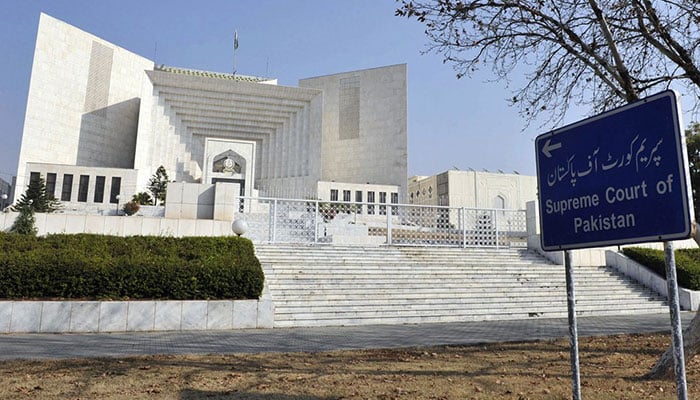
A perennially divisive topic in legal and political debates across the globe is the trial of civilians in military courts. The argument that only military courts should hear trials involving state-sponsored attacks is supported by the conviction that these organisations have the knowledge and security procedures required to handle national security-related issues.
It is crucial to explore the practise of trying civilians in military courts’ historical roots in order to comprehend it. Different countries have used diverse strategies throughout history when it comes to convicting civilians in military courts. The practise has its origins in ancient civilizations where military officials frequently ruled over the populace of civilians.
Military courts are still employed today for a variety of reasons. Among these are upholding military discipline, addressing national security issues, and, in some situations, dealing with significant crimes committed by civilians during times of conflict or in regions under military administration.
The use of military commissions and tribunals to trial civilians in some circumstances has been a divisive topic in the United States. With the development of the Guantanamo Bay detention facility, where individuals accused of terrorism were detained and convicted by military commissions, this practise rose to prominence in the years following 9/11. Due process and transparency concerns led to harsh condemnation of these military commissions from both domestic and foreign sources.
The United States is not the only country that uses military tribunals to try civilians. Many nations, notably Egypt, Turkey, and Saudi Arabia, have come under fire and scrutiny for trying civilians in military courts in matters involving terrorism, political opposition, or national security. These nations have vastly different legal systems and customs. Military tribunals are thought to have a particular awareness of matters of national security and the possible repercussions of particular actions. With this knowledge, they are more equipped to deal with situations involving terrorism, espionage, and attacks on the state.
The recent decision by the Supreme Court (SC) of a country to declare the trial of civilians in military courts as unconstitutional and invalid has ignited a fierce debate.
The recent decision by the Supreme Court (SC) of a country to declare the trial of civilians in military courts as unconstitutional and invalid has ignited a fierce debate. This decision, seemingly made without solid legal grounds, has raised concerns about national security, the efficacy of the criminal justice system, and the potential implications for the country. Reviewing the historical background of civilian trials in military courts is crucial to comprehend the ramifications of the SC’s ruling. The major purpose of military courts, which have been around for centuries, is to uphold order and enforce military law within the armed forces.
The Army Act of 1952 and its revision in 1967 had a crucial role in the legal framework for trying civilians in military courts in the particular setting of the country in issue. These legal provisions set forth the conditions, notably those involving assaults on military stations, structures, or institutions, in which civilians could be tried in military courts. But this paradigm continued to be a source of debate over time.
The nation’s judicial system has a complicated history when it comes to handling civilian cases in military courts. In the past, the Supreme Court had defended the legitimacy of these trials. For instance, the SC approved the Army Act modifications in 1975. This was a result of the legal consensus of the day permitting such trials in military courts.
A substantial divergence from earlier legal interpretations can be seen in the Supreme Court’s recent ruling that civilian trials in military courts are illegal and void. This choice brings up a number of serious problems and worries.
Critics claim that the SC’s decision has a strong legal basis because it appears to go against earlier rulings that upheld the terms of the Army Act. Concerns have been raised regarding the ruling’s potential to destabilise the nation’s legal system due to the lack of clear legal justification in the decision.
The potential impact of the Supreme Court’s decision on national security is one of the most urgent issues that have been raised. People in important military positions, including those with access to classified material, may avoid accountability if the clause allowing civilian trials in military courts is removed. The security of the nation is at danger since this could make it more difficult or impossible to prosecute those who expose state secrets.
The ruling has effects on military retirees as well. Although they are no longer serving in the military in an active capacity, their involvement in security-related issues could result in the public disclosure of private information during open trials, jeopardising national security.
The SC’s decision’s potential retrospective effect is another disputed issue. The 1967 judgement could make obsolete earlier decisions made by military courts if it is applied. For those who have previously been tried in such courts, this may have significant ramifications.
Critics claim that the SC’s ruling has a limited point of view. The wider ramifications of trying civilians in military courts, particularly in situations involving national security and attacks on military facilities, are not considered. The ruling appears to neglect the actual difficulties the criminal justice system faces in handling such delicate cases.
It is evident that the topic of civilians being tried in military courts is difficult and has a complicated historical background. The new verdict has called into question the current state of the law, raising concerns about how the nation will deal with issues like national security, attacks on military facilities, and the punishment of people having access to private information. It is crucial to strike a compromise between defending civil liberties and preserving national security in this dynamic legal environment.
The author can be reached at : omayaimen333gmail.com
Courtesy by Omay Aimen – Daily Times


















Leave a Reply